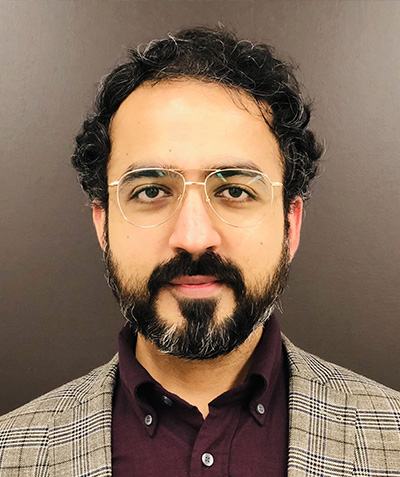School of Dentistry Seminar Series – Dr Karan Gulati - Fit & Forget: Nano-Engineered Therapeutic Dental Implants
 Bio
Bio
Dr Karan Gulati is a Research Group Leader and the Deputy Director of Research at the School of Dentistry, The University of Queensland, Australia. Dr Gulati is a pioneer in electrochemically nano-engineered dental implants with over 13 years of extensive research experience using nano-engineering towards various bioactive and therapeutic applications. Dr Gulati completed his PhD from the University of Adelaide (Australia) in 2015 and was awarded the Dean’s Commendation for Doctoral Thesis Excellence. His career has been supported by prestigious fellowships from NHMRC (National Health and Medical Research Council, Australia), JSPS (Japan Society for the Promotion of Science, Japan), Erasmus+ (Germany) and the University of Queensland. At 7.5 years post-PhD, Dr Gulati has edited 3 books, published 7 chapters and 70 publications (h-index 34), and presented >110 times in various reputed conferences.
Abstract
Conventional titanium-based dental implants require enhanced bioactivity and local therapy for long-term success, especially in compromised patient conditions (like diabetic, smoker or aged patients). Poor osseo- and soft-tissue integration and the onset of bacterial infection are the leading causes of implant failure. As a result, nano-engineering of Ti dental implants is emerging to enable augmented integration and local therapy. This research showcases the potential of advanced implant nano-engineering via electrochemical anodization to fabricate nanopores (like nanoscale test tubes) on Ti dental implants to achieve tailorable bioactivity and local drug release.
First, anodization is optimized to fabricate stable and aligned nanopores on micro-rough dental implants, followed by in-depth physical, chemical and mechanical characterization. Next, in separate experiments, primary human osteoblasts and gingival fibroblasts are cultured on nano-engineered Ti to reveal osteogenic and soft-tissue integration abilities, respectively. Further, human salivary polymicrobial biofilm is cultured on nano-engineered Ti to test bactericidal functions.
Results show that anisotropic nanopores mechanically stimulate osteoblasts and fibroblasts to enable parallel alignment within 24h. Enhanced proliferation, adhesion, alignment and gene expression profile confirm that nanoporous implants augment implant-tissue integration. To showcase the potential of nanoporous implants as local drug eluting modification, gallium (Ga) was doped into the nanopores and significantly enhanced bactericidal functions were observed.
Next, we demonstrate the use of electrical stimulation therapy (EST) to achieve augmented integration and bactericidal functions. In summary, this research showcases advanced dental implants that have been modified via electrochemical anodization to fabricate controlled nanostructures that enable enhanced osseo- and soft-tissue integration while selectively reducing bacterial attachment and biofilm formation.
About Seminar series
The School of Dentistry Seminar Series is an opportunity to highlight outstanding research both within the School and from national and international guest speakers.
All are welcome to attend, including academic and professional staff, visitors, students, industry partners, dental industry professionals and the general public. Seminars are held at various times at the Oral Health Centre, Herston, and online.
In addition to our general School series, additional seminars will be presented by our various research groups.
